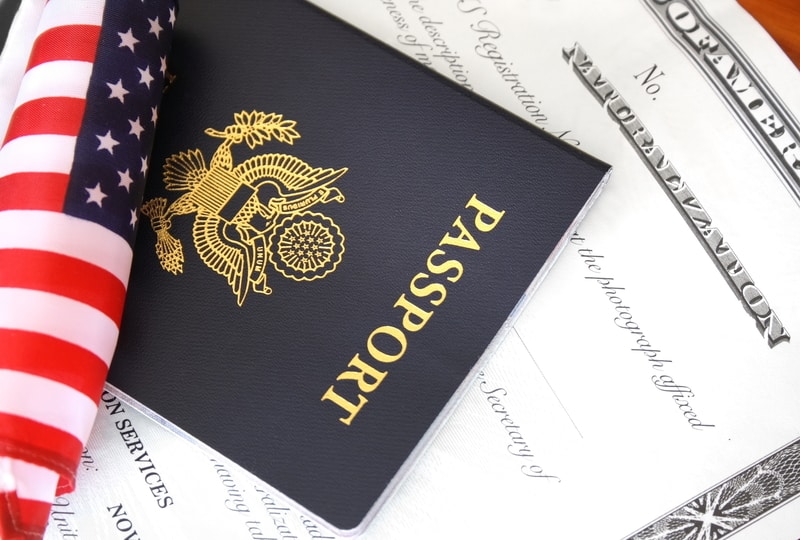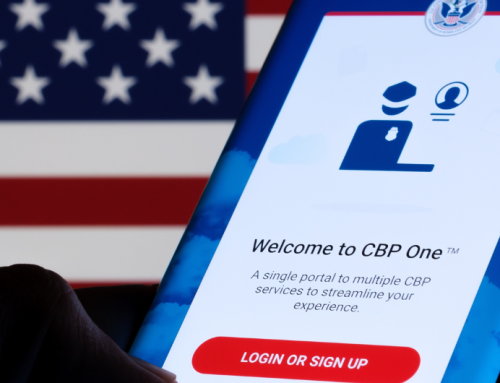10 Things to Know When Applying for Citizenship
Applying for citizenship (also known as naturalization) in the United States is not a straightforward process. Millions of immigrants have green cards and meet all conditions for naturalization, but only a few become citizens each year. The reason for this gap is often a lack of reliable information about the citizenship process, and the help available. Now New America Media and other immigrant-rights organizations are running campaigns to turn this situation around.
For example, the Services, Immigrant Rights, and Education Network (SIREN) and its partners have helped hundreds of thousands of people to naturalize. This has saved them millions in filing fees. SIREN has also held thousands of naturalization events. Ms. Vanessa Sandoval, Immigration Legal Services Program Director for SIREN, is based in San Jose, California.
Here are few highlights of the things to look out for when applying for citizenship in the United States and benefits of being a United States citizen.
Some of the main things you should know are:
1) Filing fee can be waived. One of the biggest deterrents when applying for citizenship is the hefty filing fee. However, many people do not know that a fee waiver is available. Low-income applicants can apply for the fee to be waived. There are income requirements that you would have to meet, but if you qualify, you will receive citizenship for free. For example, if you receive food stamps, you are very likely to be approved for the fee waiver.
2) There are waivers and exemptions from the English language requirement. Many people who are not fluent in English are worried about failing the language test. However, it is important to remember the requirement for the naturalization language test is proficiency, not fluency. In addition, there are waivers and exemptions. For example, you do not have to take the English language test in the following cases:
- You are 50 or older and have been a green-card holder (Lawful Permanent Resident, or LPR) for 20 years;
- You are applying for citizenship and are 55 or older and have been an LPR for 15 years.
If you are disabled or impaired, you can apply for a disability exemption from the English language test. This is done when you are applying for citizenship. Even if you fail the English language test, you are allowed to re-take it once without re-applying.
Not everyone has to take the civics test when applying for citizenship
3) There are resources to help you prepare for the civics test and exemptions from the test. The civics test consists of 100 questions that are available online with the correct answers. When applying for citizenship you will have a citizenship interview in which you will be asked 10 of those questions. You must answer 6 correctly to pass. Many organizations, including ethnic community centers, churches, and charities, offer free or low-fee classes to prepare you for the test.
United States Citizenship and Immigration Services (USCIS) has resources on its website to help you study. For many people who went to school in the United States, the civics test will be relatively easy. This is because most questions are usually covered by school, college or university classes.
You may even be able to take the test in your own language. This is the case if you are 50 or older and have been a green-card holder for 20 years. The same applies if you are 55 or older and have been an LPR for 15 years. If you are 65 or older and have been an LPR for 20 years, you can do a simplified test. Furthermore, you can do it in your own language. Finally, if you are disabled or impaired, you may be exempt from the civics test.
4) You have to demonstrate “good moral character”. When you apply for citizenship, immigration officials will look at your criminal and personal history for the last five years. Certain convictions may not only prevent you from naturalizing but cause you to lose your green card. To be on the safe side, it’s important to get legal advice before applying for citizenship.
Some convictions may bar you from applying for citizenship

5) USCIS will review and revisit your entire immigration history and past immigration applications before approving your naturalization application. Immigrants usually hire qualified attorneys for their asylum process or adjustment of status to obtain their green-cards. However, when it gets to applying for citizenship, some applicants believe that naturalization requires only the completion of forms and preparation for the citizenship test. Unfortunately, that is not so. When reviewing your citizenship application, USCIS has the last practical chance to revisit all your prior immigration history. It’s the last chance to review your background and identify any issues, problems, mistakes, inconsistences or even fraud. It often happens that at the time of reviewing the citizenship application (form N-400), or during the citizenship interview, a USCIS officer will spot errors or discrepancies in the previous immigration applications. These might require adjustment of status (I-485), asylum application, or even consular visa application. Sometimes, the officers ask questions about the applicant’s asylum application during the citizenship interview even though many years have passed. When USCIS finds a discrepancy or error, it may deny the naturalization application, revoke your permanent resident status (green card), terminate your asylum or even place you in removal proceedings.
6) Only citizens can vote or register to vote. Citizens are eligible to vote, while green-card holders (LPRs) are not. Therefore, citizens are the only people who can have an impact on laws and regulations. As a United States citizen and voter, you can shape immigrant-friendly policies.
Do not register to vote if you are not yet a citizen. You become a citizen after you have attended your naturalization ceremony, taken the oath and received your naturalization certificate. This is important. Even inadvertent registration for voting can make you ineligible for citizenship or even removable.
Green card holders have fewer rights and privileges.
7) Citizens can travel freely. As a green-card holder, there may be restrictions on your travel. If you stay outside the United States for more than 6 months you may risk losing your permanent resident status. Every time you re-enter the United States as a green-card holder, you are questioned. You may be interrogated, subjected to a criminal background check, and denied entry to the United States.
By contrast, as a United States citizen, you can travel freely. You can stay abroad for as long as you like. Unlike green-card holders, citizens are not questioned about their residence intent when they return to the United States after a trip abroad.
8) Citizens are treated differently by the courts. There is an important difference in the way the legal system treats green-card holders (LPRs) and citizens. As a green-card holder, you can be deported if you are convicted of certain crimes. As a citizen, you cannot be deported.
Citizens have significant advantages
9) Citizens can sponsor their children and spouses much faster, and can also sponsor their parents, married sons and daughters, and siblings. As a US citizen, you can petition for immigration of your children (under 21), spouse and parents. There is no waiting time (priority date) for visa numbers when you petition for your parents, children and spouse. While permanent residents can also sponsor their children and spouses, there is usually at least a two-year waiting time for availability of visa numbers. Unlike green-card holders, US citizens can also sponsor their siblings and adult children even if they are over 21 and married. Your grandchildren can be derivative beneficiaries when you petition for your children.
10) Citizens make greater contributions to the country. Citizens not only have the ability to vote, but also tend to be more involved in their communities. Citizens are also eligible for social benefits, housing assistance, certain loans and other important resources.
Some of these remarks were made during the national tele-briefing “How Citizenship Changed My Life,” organized by New America Media. Participants shared advice and practical tips for those considering applying for citizenship of the United States. The event also featured testimonies from new Americans who have gone through the naturalization process in the past year. They described how their lives have changed since they became citizens.
Attorneys at I.S. Law Firm have helped many permanent residents to naturalize and become US citizens. If you are interested in applying for citizenship, please contact us at +1-703-527-1779 or via e-mail: [email protected].








Thank you very much for this fruitful information, but what are the requirements to apply for USA citizenship? thank you once again.
If you are going to do it Spanish because you have 20 years of residency and 50 years old. What kind of evidence/ documents do you need to process you application? And how does the new law affect me if I am receiving benefits? Can I still apply for the waiver?
I’m LPR for over 27 years renewal twice my card. I will be 55 years old in Dec. I want apply for US citizen I’m aware of the exception however i do not have finantial way to pay the fees. Vut i do not received food stamps. I work for Mecklenburg county. Please if can get more information will be helpful. Clen record also.
I was in a trip in Peru last month and I lost my green card. Like I have more than 5 years and the expiration date of my lost green card was on 2027, I would like to apply for the naturalization. Could I file the i-400 form and skip the I-90 to replace the card? Or should I file and pay for both forms?